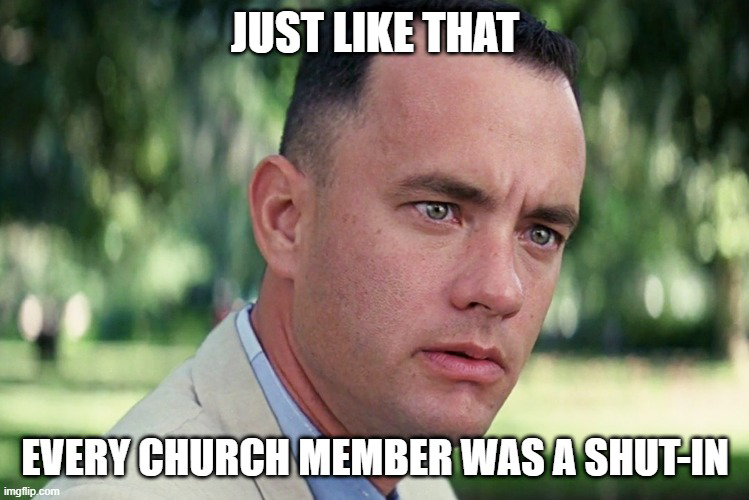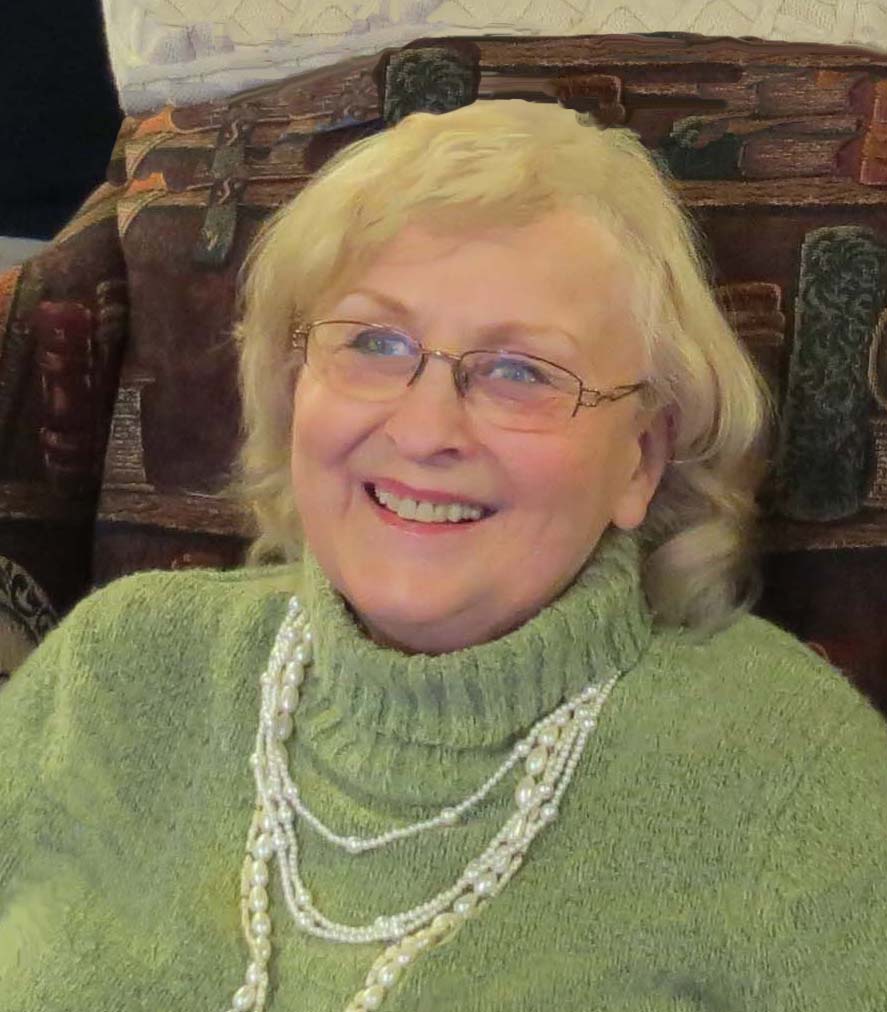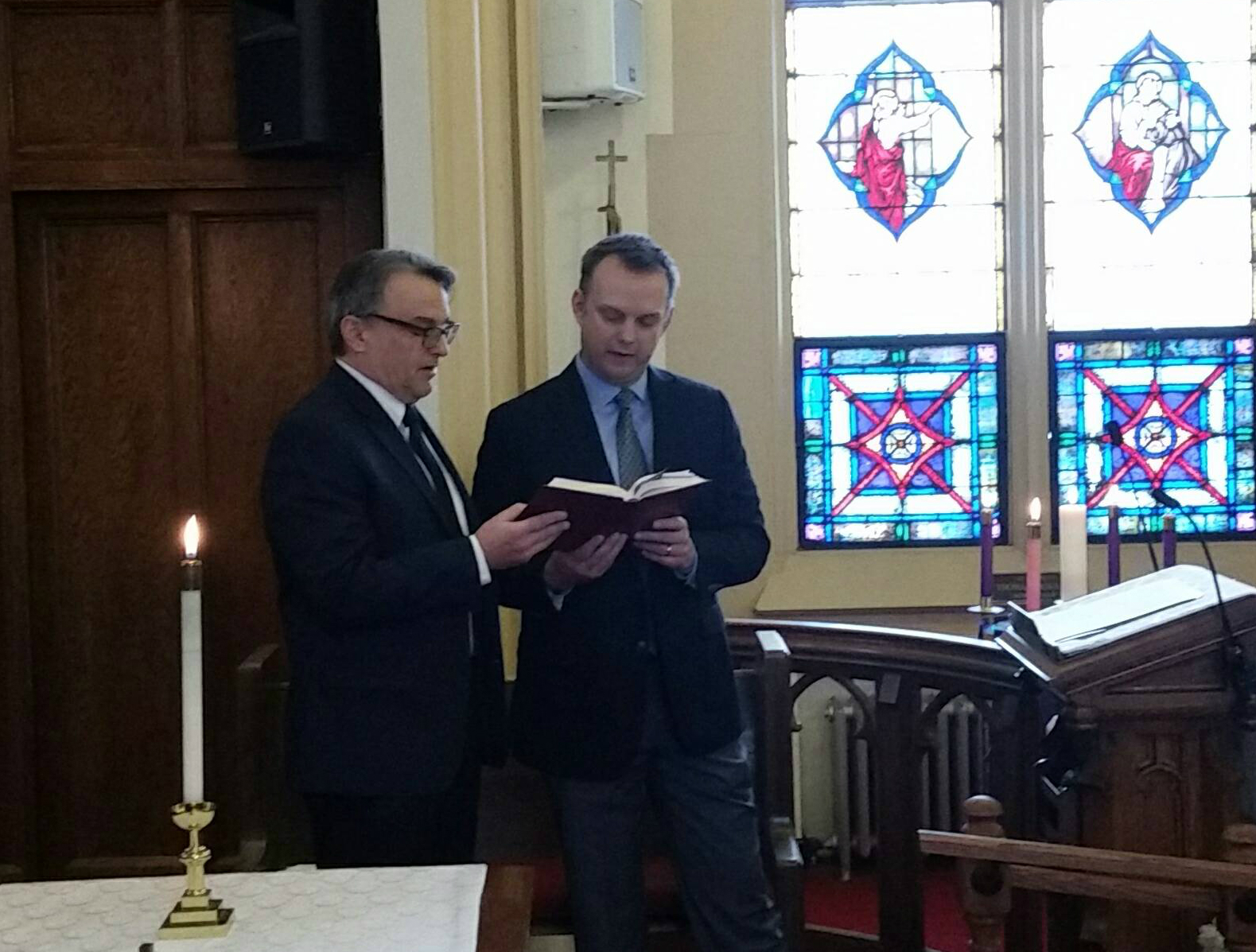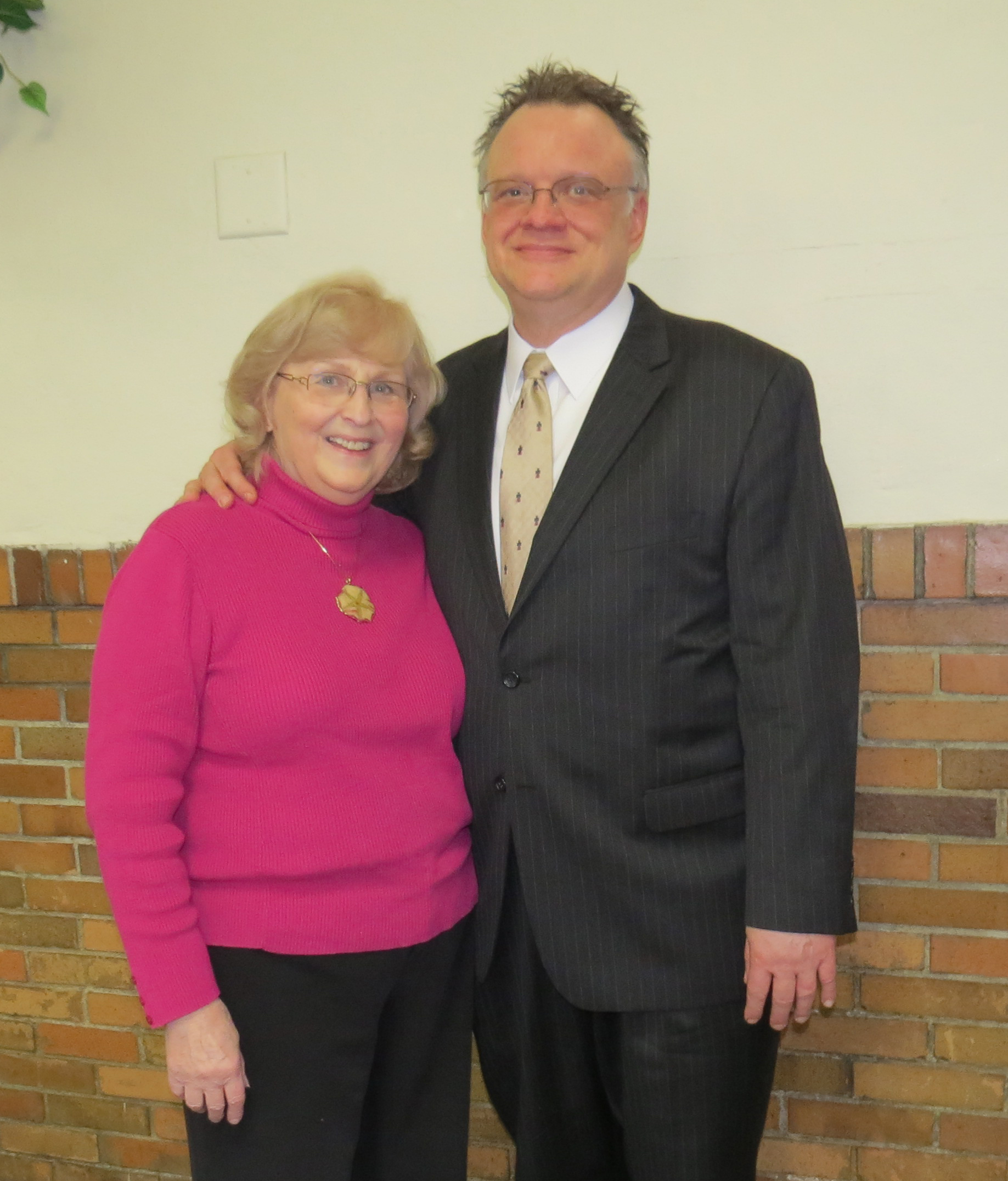
“I know that.” Is there ever a good time to hear that response? Or say it? Do we worship what we know or what we love? How can we love others when we know better?
originally “To Love Knowing or To Know Loving”
Preached at South Lake Tahoe Community Presbyterian Church on October 18, 2015
A message based on I Corinthians 8:1-13 & Isaiah 6:1-8

Sermons also avaliable free on iTunes
Thanks to edigitaltranscription.com for the following transcript, slightly updated. All errors are my own.
I can’t find it. Can anyone tell me when intermission is? Why don’t we have an intermission? I mean, Søren Kierkegaard, great big brain, big, big mind in the church, said that worship is a drama. Now, he said it to make the point that, in that drama, we are the performers. We are the ones putting on the show, and the audience is God, not the other way around. But still, I mean, come on. Intermission, why not?
Now, I know some of you, and I know who you are, you don’t have to raise your hands, some of you are saying, well, if we had intermission, he went on for another hour. And then it’s a two-hour worship here or something. Well, that’s not it, either. Intermission is very important. I don’t know if you go to the same place I do, but I think intermission gets more billing than the actual play you’re going to see. They come out and say, “There will be one 15-minute intermission, 45 minutes into the play, and we will have refreshments out in the lobby, and we will be selling tickets for our next performance over there, and we’ll be doing this, and some of the cast members will be out there for autographs.” You hear more about the intermission than about the play you came to see.
Why don’t we have an intermission? That’s a mystery. But some of you that may have studied this, maybe taken one of them courses you got here about worship, would tell me that, well, there’s no intermission in Isaiah 6. Yes, friends and neighbors, I do speak of the Bible now and then during a sermon. I know it’s hard to check, but there it is. Isaiah 6, as well as being the commission to Isaiah, is also our touchstone, is our basis, our outline, our reference text to what we do in worship. In Isaiah 6 you see the things that are in worship, right there in Isaiah.
The first thing that we have is adoration and praise and singing and glory, which is what we do. We have prayer of adoration. We have a hymn of praise. We have all these things. And that’s right there in Isaiah. And the next thing that happens, did you catch it? When they get into the presence of God, and they’re singing about the praise and how wonderful God is, and everything glorious, it occurs to Isaiah, as it occurs to every right-thinking human being, what in the world am I doing here? I have no right to be here. I haven’t done everything right. In fact, I’ve done some things wrong. I am not allowed to be here. I should not be here. I am not worthy.
And there it is, in Isaiah, and in our bulletin under the Prayer of Confession. We are not worthy to be here in this praiseful room with the awesome God that we have. And the same thing happens in our bulletin that happened in Isaiah. As soon as we say that, as soon as we say we’re not worthy, we don’t get an argument. We get forgiveness. That hot coal comes down off and burns away the sin. And that is the assurance of the declaration of pardon. And that’s right in there.
And then the next thing that comes is the invitation, is the question, is the commission, saying we’ve got work to do. We’ve got things to do. We have a mission to attend to. We have people in need. We have a world that’s hurting. What are we going to do? And if things go well, worship doesn’t stop there. But it goes with Isaiah and us saying, “Here am I. Send me.” And that’s the commission and the benediction. No intermission. But plenty of drama. And God is the audience.
What about other worship? Have you been to other types of worship services? Contemporary worship? Some people say all they do is get in, start singing and yelling, and it’s a half hour of yelling and words coming out and praise music and all this. And then the minister comes out and talks and talks. Then they have the offering and they go home. You barely see anything else. So they call it “hoot and toot, loot and scoot.” That’s very unfair, but I can’t resist that. No intermission there, either.
And we argue about worship, don’t we. There’s not a whole lot in Isaiah so we say, well, this is it. This is the way it is. We know how it’s been done. We like to say that, don’t we? We Presbyterians, we know how it’s done. We know the way the things go. We know what is right. Did you know that the oldest Presbyterian church, the oldest church in Chicago is Presbyterian? Chicago was not settled by Presbyterians. It was settled by Methodists. But the Presbyterian was the only one that brought the book of church order. He was the only one that brought the instructions for how to do church. So they had no choice but to be Presbyterian. That is our heritage. We know how to do things. We know how to do worship. And if we don’t, we’ll have a committee to find out how to do it. We’ll get it done. We know stuff.
But we still argue about what we know and who’s right and who’s wrong. Even the Presbyterian Church, you get four Presbyterians in the room, you get six or seven opinions. It never matches up. And you think that this scripture is about food offered to idols. I mean, it says that right there in the scripture, “Food offered to idols.” But it’s really about arguing and about knowing stuff. And that goes on all through the history of the church.
I mean, I was trying to figure out, when do we have food sacrificed to idols so we could actually use this scripture? The only thing I came up with was that, when they gather, for city wide ceremonies, at those great big round things. They sacrifice food for those great anthropomorphic animals. You know what I’m talking about? They do it every week in the fall. Football? Tailgating? I’m pretty sure that’s food sacrificed to idols. Good food, brats and things.
But I don’t think we’re talking about tailgating. I think we’re talking about arguing. Oh, and we know about the arguing. We know about that. So you look at that arguing, it’s the way we argue now, isn’t it. We don’t argue with, , a reasoned plan, a position paper, a study. We don’t argue that way. We may do it, but we don’t argue that way. We don’t go out and, say, have a reasoned argument. We don’t have a controlled study with a blind control group and figure out which is the best according to scientific approved and replicated methods. We don’t do that.
I mean, just look at the so-called “debates.” That’s not even a debate, it’s sound bites; isn’t it? It’s how many of my slogans can I get into whatever the thing they said before, not necessarily answering the question, but getting my sound bite in. Same thing here. You see all them quotes in that scripture about we know idols have no existence, right there. Quote. We know that sacrificing meat to idols is wrong. We know that there’s only – and then he brings out the big one. An applause line, like “Let’s make America great again,” or “U.S.A.,” or “God bless America.” I mean, when you said this to the crowd, the crowd went crazy? He said The Shema: We know there is one God. There is only one God. Everybody went, “Wow.” He’s got sound bites in there. And he says, “I know all these.”
So that’s how Paul argues. He says all the sound bites going around– and adds his own. Did you catch it? Knowledge puffs up, but love builds up. That’s his sound bite. Knowledge puffs up, but love builds up. One of the things I’m trying to stop in my own life, and I am, I’m working on it, I’m recovering, is – and I taught my children this, and they take it into their adult lives – is that there’s never a time when it’s necessary to say, “I know,” to someone. You can just as easily say “Thank you.” Even if you know stuff. It’s not a competition. It’s not a quiz. You don’t say, “I know that.” “Oh, I know that.” The poor person’s trying to explain, trying to help you out, and you say, “I know” tossing away their help.
That’s what we’re talking about here. Knowledge puffs up. Love builds up. How does that work out? It’s hard. Paul goes through and says don’t trip up other people by your knowledge. Don’t be so knowledgeable. Don’t be so right. Don’t be so sure about everything that you destroy the community.
This works in any community. Wall Street, have you heard of it? Paper and shouting people are long gone. They’ve got computers, and they don’t even have people doing trades anymore. It’s all computers. And computers got so good, so fast, about how much computers know and all the data coming through and the bidding process, they actually had to slow down computers. They knew too much. And that knowledge was destroying the community known as the marketplace. They knew too much. Not just computers. There’s insider trading, isn’t there? You’re not allowed to know so much. Because why? It would destroy the community built up.
So, and this is even true in the financial world, not in just the spiritual world or church or in families or in persons, but also in the great, wonderful, capitalism system. Knowledge builds up. Knowledge puffs up. Love builds up. How does that work out?
Paul is really good at telling you what to do. He’s big on that. You go away or all that, he’ll tell you what to do. He’s a great, great teller-doer. But here, did you see the switch? He goes, “We know this. We know that. We know these things.” We, we, we, we, we. And then he goes, “If you do this, if you do that, this happens. If you….” And then, strangely enough, he switches to “I.” He gives all the stuff, the problem out there. It’s a problem we all have. And then he goes and says, “This is what I do. Me. This is how I work it out. I don’t eat meat if it’s going to give a problem to other people. I don’t do this if it’s going to cause someone to starve. I don’t do this.”
He doesn’t say you had to do that. Doesn’t say everybody had to do it. Didn’t say that was the Christian way to do things. He says, “This is the way I work it out.” I find that great. Wouldn’t that be wonderful, if we actually had that attitude, be as open as Paul? What a concept. Paul is not usually cited as someone that has a openness. But he says: here’s a problem, and we admit it, and it’s there. We are working on love, not on knowledge. We’re working on building up, not puffing up. And I’m just going to tell you what I do, and you can do however it works out for you. I don’t do those things because it’s going to cause a problem to somebody else.
And I like that. I like it when someone says there’s a problem, and the solution is what they do, not what everybody else should do. Too often us Christians, we use our knowledge and tell everybody else what to do, instead of using the love that we have for others to inform on what we should do, what I should do. This is how I work out my faith and my thing. These are the things that are important to me. These are the things I believe. And this is how I live it out. Anyone can do that. We can all do that.
Well, that’s all great, Christy, but how about a story? Okay. Back in Rochester, Indiana, 96 miles north of Indianapolis, due north, 45 miles south of South Bend – somebody asked me where it was. That’s where it was. Still is, last I checked. We had a pillar of the church die. And it was in a family of pillars. They were redwoods. They were majestic.
It was like going to Muir Woods. You ever been there? You’ve got to go. You go there, and the redwoods are everywhere. And you look up, and you say, who am I? These redwoods have been there hundreds of years. Look at how majestic, how strong, how straight they are. Who am I? I’m just a flicker.
That’s the way I felt with this family. I mean, they were there, holding up the church. They were there before the church was there, and they’re going to be there after me. I tell you, they were something to behold. If there was an event, they were there. If there was funds to be raised, they were given. If they could go around to the church, and they wouldn’t, but they could say, “I built that. I put in that staircase. I put up that wall.” Pillars.
And we were going to have the greatest funeral for one of them that you’ve ever seen. We’re going to have the choir singing at the funeral. We’re going to have the organ pull out all the stops! We were going to have robes, and we were going to have marches, and we were going to have the best everything. We were going to holy it all the way up. It was going to be great.
So the family comes in, and I’m all ready for the worship to end all worship for this service. We know how to do it, and we’re going to do it up right for this family, and it’s going to be great and honor her faith and her life. We came. The family came in. The redwoods processed in. And then comes someone I’ve never seen before. Which is odd, because this family was there every Sunday. They were there more than me. And I look, and “Oh, hi, hello,”. “This is Mary.” “Oh, hi, Mary.” “Mary is our sister.” Oh, oh. “Mary, thanks for coming in. Where do you live?” She goes, “Right here in town, lived here all my life.” Oh, oh, oh, oh, oh. “Are you – do you go to another church? What church do you go to?” “Oh, no, no, no, no, no. I don’t believe in God. I don’t believe in God.”
Oh, oh, well. This has taken a turn. Okay? All right. We all sit down, and we talk. And I’m talking about the choir and the anthem and organ and the theme and thing and the colors. And Mary says, “I’m sorry, I don’t want it in the church. I can’t come. I can’t come if it’s in the church.” For once in my life I shut up. Because I figured, not because I was wise, which would have been good to say, but because I figured, well, these redwoods will take care of this. They’re not going to stand for this; right? I mean, these people are all about church. They’re nothing but church. The person that did was there every Sunday, and of course we’re going to have it at church. The church needs to have this. The congregation wants to give her a sendoff. The congregation wants to witness to the faith. We’ve got everything here.
“Can we have it in the funeral home?” Oh, the funeral home in Rochester was, well, I mean, they meant well. But it was kind of like playing with the box that church came in. What’s left of the toy when you take it out, and you just have the cardboard box there, I mean, it was just generic and plain. No even a cross, not anything that is anything – certainly not an organ. “Can we have it in the funeral home?” I go, well, this isn’t going to go. I think, maybe we could compromise, maybe have three hymns instead of five.
And then the patriarch, the main man, said – I go, well, here it is. This is going to be some wisdom. I’d better be remembering this. This is going to be – and it was, but not what I thought. And he said, “Well, should we accommodate?” And one after another those redwoods bowed, said yeah, yeah, yeah. No compromise. No arguing. No teaching. No seniority. No power plays. “Shall we accommodate?” Yeah. Okay.
So I said, “Well, okay. Funeral home. We usually do this. I’ve got this here. We can do these prayers. We’re not going to have a choir, we don’t have the organ. We can take out this. We can do this.” And Mary pipes up, “Wait, wait. It’s okay. It’s okay. Thanks. Can we just – let’s have it in the church.” And the redwoods say, “You sure, Mary?” Goes, “Yeah, yeah, yeah. Thanks, yeah.” Okay.
And we had it in the church. Do you love the church so much that you would give it up for someone that’s not saved? I learned something pretty powerful that day, and not what I was expecting. She wasn’t part of that community until her families were ready to give it up for her. “We love you that much. We love you that much, Mary. We’re not even going to argue. If that’s what you need, okay. Okay.” Knowledge puffs up. Love builds up. And that’s how that family worked that all out. Mom did a pretty good job. I think Paul would approve.
What about that intermission thing? Thought I forgot, didn’t you. Ha ha. What about that intermission? I think there was a little intermission right there. A little stop in the drama and the play and the parts and the labor that we work on. I think there was an intermission there. Because intermission is when everyone, when the curtain comes down for just a moment, and you can be who you are with who you’re with, and you could talk to them about what’s going on in the great big drama and the plot and what has happened and what may happen and get caught up a little bit and say, what does it mean when they said that? Oh, that was in, you take a break and connect up with everybody and get refreshed and remember who you are, instead of in the great big drama story that’s all around you.
And in that way, worship is intermission. The entire worship service is an intermission between the mission and the work. Between all of our roles and scripts that we have to fill, and the costumes that we wear, and the parts that we play, and the interactions that we have to get right, and to know our lines and to hit our marks and to do the work that comes to make the great drama appear, worship is, oh, step back. Hold on. Remember who you are. Remember who you’re with. Take a look at what’s going on around you. Make sense of it all. And then you’re ready to go back, with a greater knowledge and understanding and appreciation of what’s going on in the drama all around us.
Knowledge is great. Knowledge is good. I spent a lot of time in Louisville, learning stuff in seminary. But my education wasn’t finished until talking about the church service that was almost not in the church because they loved so much. They wouldn’t let their knowledge get in the way of that love. When they built up community then, instead of puffing up the things they knew, how would they – would people say that about me and about you and about all the Presbyterians? See how much they love, not how much they know. Love well. When the intermission is over, go out and play that part in the world. Amen.

Christy Ramsey. Some rights reserved. This work is licensed under a
Creative Commons Attribution-NonCommercial-ShareAlike 3.0 Unported License.
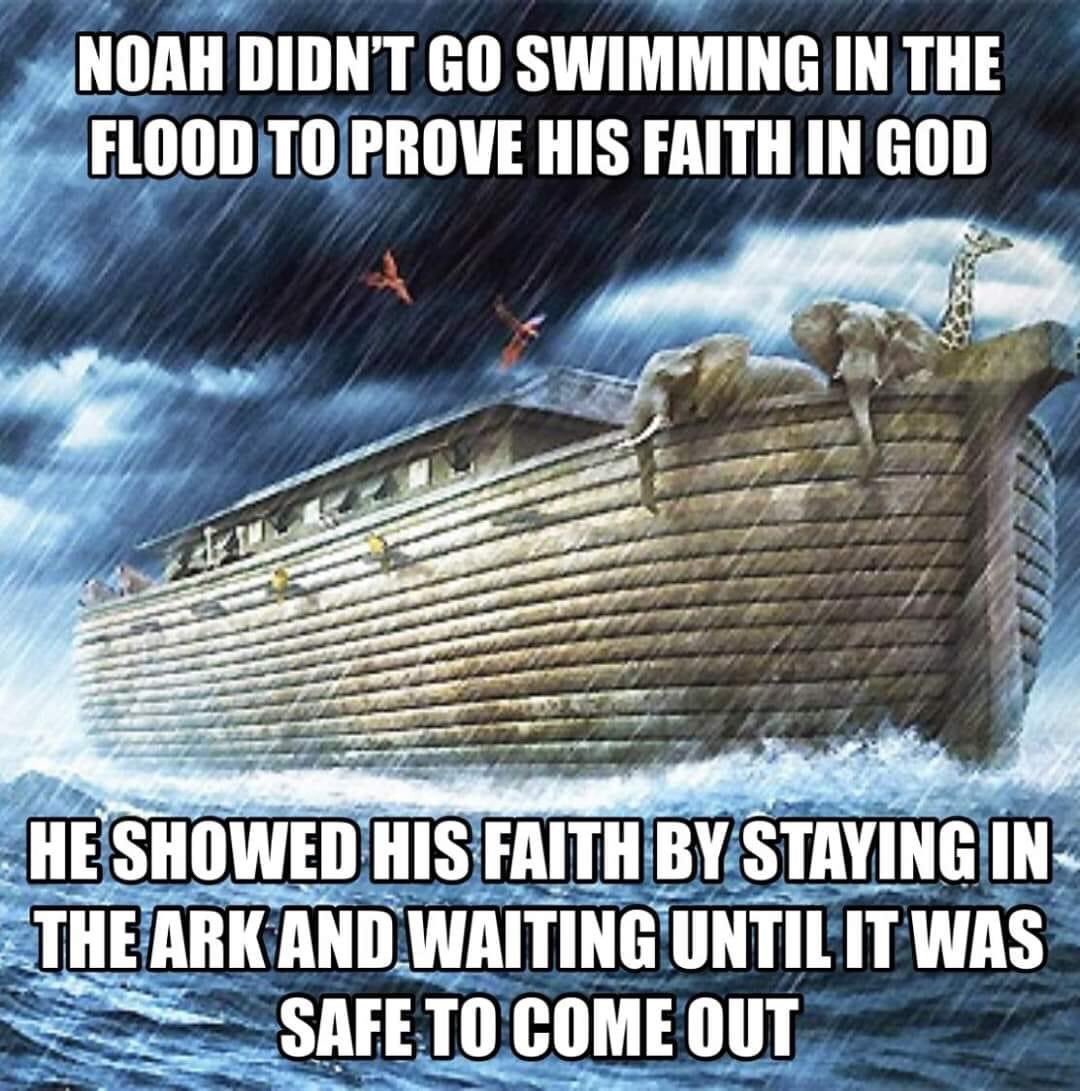
Pastor Carl






 Christy Ramsey
Christy Ramsey